DCM – setting up credentials
As we saw in this chapter introduction, DCM allows you to administer credentials and passwords in a single-source, centralized way, so it solves some pain points, for example, multiple credential inputs, credentials being unsafely shared, loss of connection to data sources upon workflow sharing, among others.
Before getting into the matter, we need to identify three types of objects/concepts within DCM:
- Credentials: Authentication mechanism for the specific technology
- Data Sources: All accessible technologies supported by Alteryx
- Connections: The combination of a data source and the credentials used to validate within
Also, if you have Alteryx Server, you can synchronize and share your connections against it. If you don’t, credentials, data sources, and connections created with DCM will remain local.
Getting ready
To follow this recipe, you must enable DCM on Alteryx Designer. To do so, go to Options → User Settings → Edit User Settings and from the DCM tab click on Enable DCM.
If the Enable DCM option appears disabled to you, click first on Override DCM System Settings, and it will enable it.
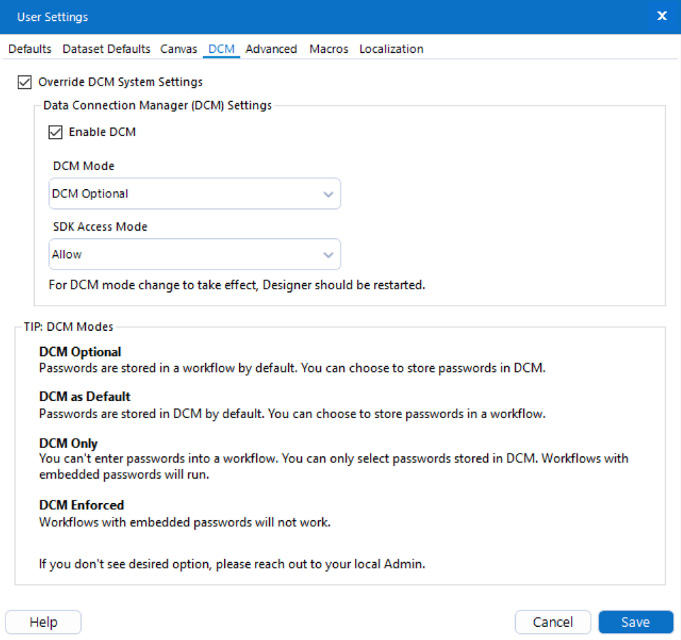
Figure 2.29: DCM options in User Settings
Make sure DCM Optional is the selected value for DCM Mode and SDK Access Mode is set to Allow.
Restart Alteryx Designer and you’ll be ready to work with DCM.
How to do it…
We will get started using the following steps:
- Go to File → Manage Connections.
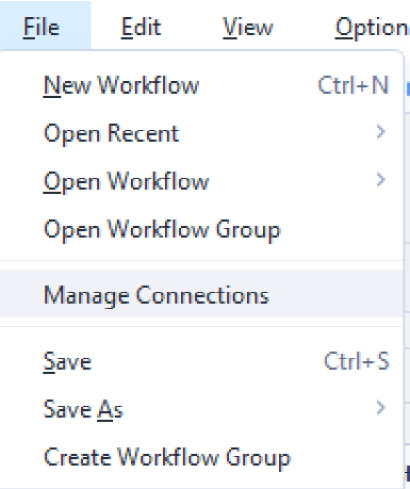
Figure 2.30: Manage Connections menu
A new window is displayed (yours might be blank):
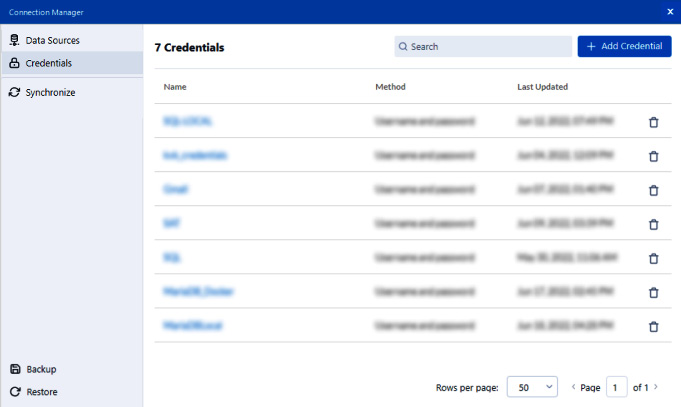
Figure 2.31: DCM main window
- Click on + Add Credential at the top right of the window and Alteryx will ask you to enter values for Credential Name and Method.
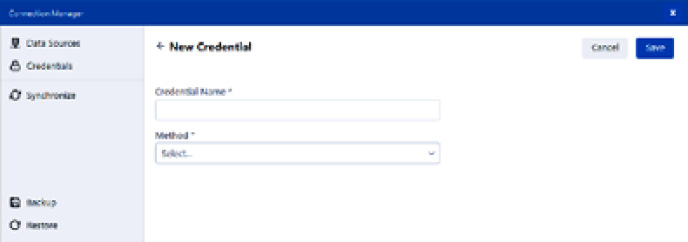
Figure 2.32: DCM main window
- Enter a meaningful name for your credential, such as
SQL SERVER System Administrator, and select from the dropdown for Method. In this case, we’ll be using Username and password.
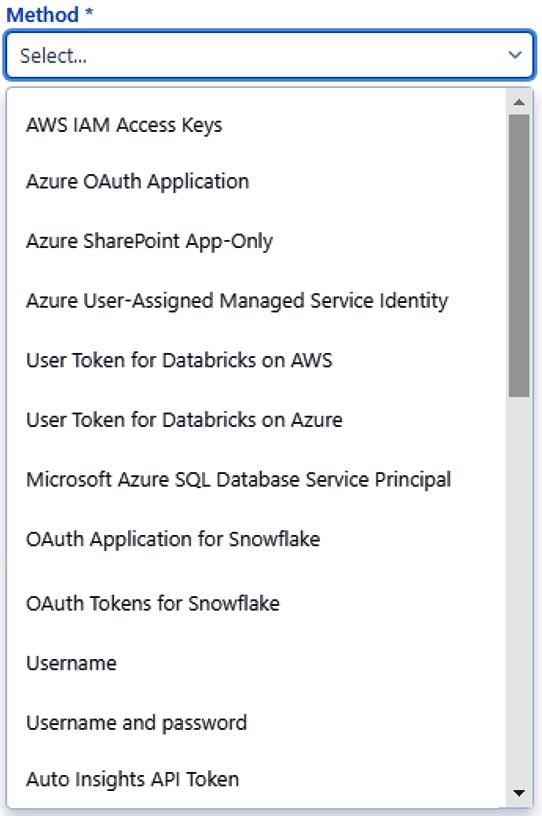
Figure 2.33: Credential Method options
- Once you make a selection for Method, Alteryx will show you the Username and Password input fields, so fill them in with your credentials.
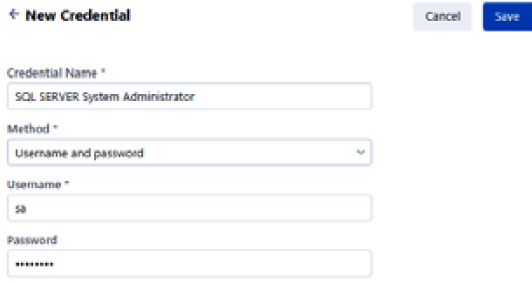
Figure 2.34: Credential Method options
Click Save and your credential will appear in the Credentials panel.
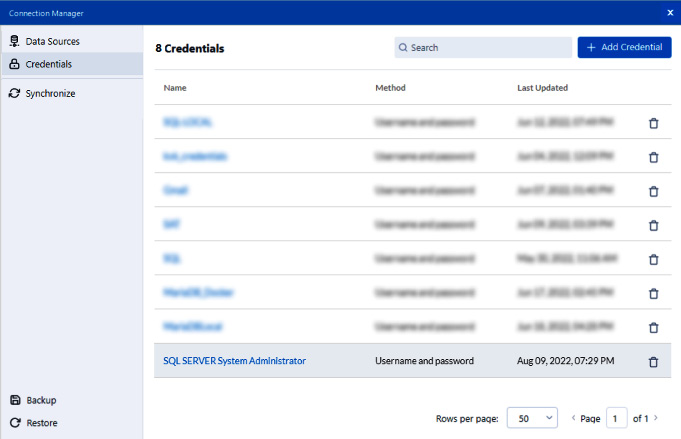
Figure 2.35: New credential added
Thus, we have learned how to set up credentials using DCM.
How it works…
DCM saves the credential information provided as a credential object, encrypted as a secure object, and makes it available to be reused when you need it.
This actually improves the way that credentials are managed, since using DCM changes how that information is saved (if DCM is disabled, credentials are embedded within the workflow).























































